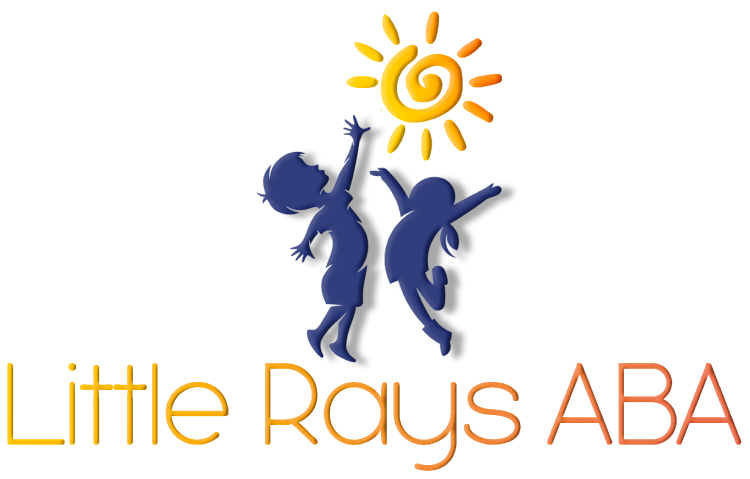8 Best Jobs for Autistic Adults: Paths to Success
Finding the right career path for autistic individuals means looking at their strengths, interests, and how they like to work. The autism spectrum includes many different abilities. Many autistic people do very well in jobs that need logical thinking, attention to detail, and creativity. As more people learn about neurodiversity, more workplaces are changing to help support them. With the right support systems and job opportunities, autistic adults can succeed in jobs that fit their unique skills and needs.
8 Top Jobs for Autistic Adults
Careers that focus on independence, daily routines, and skills like logical thinking or creativity work well for autistic adults. Many enjoy jobs such as software development, laboratory work, horticulture, and animal care. These roles fit their strengths and preference for calm work settings. Jobs that need visual skills or pattern recognition, like graphic design and data analysis, also provide great opportunities. By finding careers that match their unique strengths, autistic adults can reach their potential and make valuable impacts in their fields.
1. Software Developer
Software development is a popular job for many people on the autism spectrum. This career needs logical thinking, problem-solving, and adaptability. These are skills that many autistic individuals have naturally. Jobs like computer programming and web development fit well with those who do best in detail-oriented settings.
Autistic developers often do great with programming languages, debugging, and making efficient code structures. These tasks let them work alone while also joining in on team projects. This way, they can enjoy both independence and teamwork.
Moreover, jobs in software development often come with regular routines and less focus on constant social interaction. For many autistic individuals, a quiet and focused space is important for getting work done. Companies around the world are starting to notice the unique talents of autistic software developers. They are creating inclusive hiring chances and helping build environments where these professionals can succeed.
2. Data Analyst
Data analysis is a great job option for autistic individuals. It needs precision, logical thinking, and pattern recognition. Many autistic people have these skills in plenty. Analyzing large sets of data, making reports, and drawing important conclusions often feel natural for those who pay close attention to details.
The job involves working with numbers, trends, and structured data. This can give a sense of achievement for autistic adults. Tasks are predictable and follow clear rules, which makes it a good work environment for those who do well in structured settings.
Additionally, data analysts can work in different fields like technology, healthcare, and marketing. This allows them to adapt their skills in many areas. Autistic individuals who enjoy numbers or logical ideas can significantly succeed in a field where their abilities in pattern recognition stand out.
3. Graphic Designer
Graphic design offers many chances for autistic individuals who do well in creative fields. This career focuses on visual thinking and art. It allows people to use their creativity to make things like logos, ads, and digital content.
Many autistic adults have a great attention to detail. They also have a unique view of design. These qualities help them stand out in a busy design market. Working independently on projects helps people who want to avoid sensory overload in their daily lives.
Graphic designers can choose to freelance or work in small teams. This gives them freedom and independence in their work. As demand for eye-catching digital and print media grows, graphic design mixes structured tasks with creative thinking. This combination opens the door for success.
4. Technical Writer
As technical writers, autistic individuals can do very well at creating detailed documents and clear instructions. This job needs good writing skills and the ability to understand complex information, which many autistic individuals have.
Technical writers usually work well in a structured environment. They create user manuals, guides, and other instructional materials. Their focus on details while ignoring distractions helps them succeed in this job. Clear communication is important, but most of the interaction is done through writing, which can be a good fit for many autistic professionals.
Employers in fields like technology and engineering appreciate technical writers for their careful and detailed work. By outlining processes step by step, autistic writers make valuable contributions to team projects. This rewarding career provides both structure and chances for individual ownership, making it a fulfilling work experience.
5. Laboratory Technician
Laboratory technician jobs offer tasks that are organized and clear, making them a good fit for autistic individuals. These workers are important in scientific research and diagnostic tests. They run experiments and keep lab equipment in good shape.
Tasks that need attention to detail, like writing down results or checking chemical mixes, benefit from the high accuracy and focus that many autistic individuals have. Labs usually have strict rules. This predictability helps workers perform consistently.
Lab technicians often work alone or in small groups. This setup can reduce sensory overload from bigger team environments. For those who naturally like science, this job allows them to help in areas like healthcare, technology, and other applied sciences. Autistic individuals who enjoy detail and solving problems can be excellent laboratory technicians.
6. Librarian
Becoming a librarian is a rewarding job for autistic adults who do well in organized spaces. They help arrange collections and support research. Librarians make sure information is easy to find for everyone.
Working in libraries provides a quiet and neat environment perfect for those who like less sensory input. Tasks like sorting books, keeping databases, and planning events need care and organization. Autistic individuals often do well in these tasks. The job needs attention to detail and strong management skills, making autistic workers great team members.
Also, librarians help society with their important work in education and research. This job lets them focus on structured tasks while thinking deeply. By using their unique strengths and love for learning, autistic individuals can enjoy a meaningful and successful career as librarians.
7. Animal Care Specialist
Working as an animal care specialist is a rewarding job for autistic individuals. It is great for those who like to help and care for animals. In this role, you feed, clean, and check on the health of animals. This job suits people who pay close attention to details.
Many autistic adults enjoy working with animals because it can feel calming. It is often less stressful than jobs that need a lot of human interaction. Animal shelters, pet boarding places, and veterinary clinics have quiet, organized settings that fit well with sensory needs.
Taking care of animals helps build problem-solving skills and a sense of responsibility. Whether you help train animals or watch their health, autistic individuals often show dedication and empathy in this work. For anyone who loves being with animals, this job offers good emotional rewards and a chance to make a difference.
8. Horticulturalist
Horticulture is a great career choice for autistic individuals who enjoy working with their hands and have a love for nature. This job includes taking care of plants, landscaping, and managing farming projects.
The work usually follows a clear routine, like watering, trimming, and planting. This structure fits well with autistic preferences for being organized. Plus, working outside or in greenhouses offers a calm place that is free from loud noises and too much social interaction.
From taking care of botanical gardens to growing crops in a sustainable way, horticulturists make valuable contributions to their communities while enjoying the peace of nature. Autistic professionals often have a strong eye for detail and a real love for plants. They create beautiful spaces that benefit everyone. This field provides chances for both creativity and discipline, allowing individuals to grow in their career and find personal happiness.
Essential Skills for Autistic Adults in the Workplace
Autistic adults often do very well in tasks that require precision, sticking to routines, and solving problems on their own. They have a great eye for detail and can concentrate for long periods. These strengths make them perfect for jobs that need accuracy or involve repeating tasks.
Having a structured routine helps them perform consistently. Projects that allow for independence let them show their creativity and initiative. By adjusting job roles to fit these unique skills, employers can bring out the best in autistic professionals, helping them succeed in different areas.
Detail-Oriented Tasks
Tasks that need careful attention are great for autistic employees. These jobs include things like database management, inventory tracking, or checking documents for mistakes. Many autistic adults are good at spotting patterns and finding errors that others may miss.
Doing these tasks accurately helps many industries, including both logistics and creative fields. For example, their accuracy can improve quality control in factories or increase data accuracy in financial reporting.
Employers gain when they assign these tasks to autistic professionals. They can trust that these jobs will be done carefully. By giving clear instructions and creating a supportive work environment, workplaces can use this special talent for projects that need great attention to detail.
Structured Routines
Structured routines provide clear and consistent support for autistic individuals. Predictable patterns, like daily schedules or step-by-step processes, help them handle tasks better.
Jobs such as administrative work, laboratory analysis, or assembly lines fit well with these preferences. Time management improves in these roles. Employees can easily use structured systems to organize their work, which boosts productivity.
Employers can help by clearly assigning tasks and reducing confusion. Structured routines not only improve individual performance but also create a pleasant work environment. Encouraging stability is good for both employees and the organization.
Independent Projects
Many autistic individuals do well in independent projects. This is because they have a strong focus and can work on their own. In jobs like graphic design or programming, they use their personal push to create great outcomes without needing constant supervision.
| Traits | Benefits |
|---|---|
| Attention to detail | Ensures quality output |
| Logical thinking | Solves complex problems |
| Clear planning | Meets project goals |
Autistic employees often show good skills in managing their projects. When they have the right tools and clear deadlines, they take charge of their work. This leads to great productivity. Employers should offer support with helpful feedback and flexible resources.
Benefits of Employing Adults with Autism
Hiring adults with autism offers many benefits to companies. Their different viewpoints help create new ways to solve problems. This often gives businesses an advantage in fields that need creativity or technical skills.
Autistic workers are very good at paying attention to details. They can focus well, so they can work efficiently, even in tough situations. By building an inclusive workplace that respects neurodiversity, businesses not only gain hard-working team members but also help create a fairer society.
Unique Perspectives on Problem-Solving
Diverse ways of thinking let autistic individuals tackle challenges differently than their neurotypical peers. This special way of thinking encourages new solutions. This is especially true in areas like data analysis and web development, where pattern recognition and logical thinking are important. These unique views can lead to breakthroughs in scientific research and creative fields like graphic design. They can give professionals a competitive advantage. Companies that appreciate these strengths create inclusive workplaces. This helps the entire team perform better. Supporting an environment that welcomes different ways of solving problems can bring valuable contributions from autistic adults. This enriches the world of work.
High Levels of Concentration
Exceptional focus can be a strong trait of people on the autism spectrum. This focus gives them an edge in many jobs. Autistic adults often do well in roles that need deep concentration. These jobs can include data analysis, computer programming, or technical writing. Their ability to focus helps them handle complex tasks accurately. They can also come up with innovative solutions, leading to valuable contributions in their work.
In creative jobs like web development or graphic design, this strong concentration can help them develop unique talents and ideas. By using these strengths, autistic individuals can do well and find rewarding careers that match their special skills.
Exceptional Memory and Recall Abilities
Exceptional memory and recall skills are often strong points for autistic individuals. Many of them have a great talent for spotting details and remembering information. This makes them great choices for jobs in data analysis, technical writing, or scientific research. These abilities boost productivity and encourage new ideas in areas where accuracy is very important. Additionally, these skills provide an edge in jobs that focus on detail and precision. This special talent not only helps with personal career joy but also allows for valuable contributions to different parts of the workforce, leading to lasting success in their careers.
Workplace Accommodations for Success
Creating an inclusive workplace is important. It helps autistic individuals feel empowered and shows their unique strengths. This can include simple changes like having quiet workspaces. These spaces help reduce sensory overload and allow focus on tasks. Flexible work hours also help, as they match different productivity levels. This means that employees can work better and manage their energy. Written instructions play a big role, too. They support the logical thinking skills of autistic individuals by making tasks clear. These changes not only create a supportive work environment, but they also help potential employers see the valuable contributions that autistic individuals can make. They can excel in various fields like data analysis, graphic design, and computer programming.
Quiet Workspaces
A work area made for less distraction can help autistic individuals work better. These spaces lower sensory overload, which helps them focus on their work. Quiet places are best for jobs like data analysis or technical writing, where logical thinking is very important. Creating a calm atmosphere can boost creativity, especially in graphic design or computer programming roles that need a lot of concentration. Potential employers who see how valuable these settings are might attract autistic talent. They will also benefit from the unique strengths that these individuals bring to the workplace.
Flexible Scheduling
Many autistic individuals do best in jobs that let them choose their work hours. Having flexible work schedules allows them to work when they feel most productive. This can help improve their work performance a lot. It also gives a good reason for potential employers to offer these types of arrangements. Customized work hours can help with sensory sensitivities and fit their unique ways of working, leading to better focus and more job happiness.
In creative fields or technical roles, flexible schedules can boost productivity significantly. This support not only helps autistic adults but also allows them to make valuable contributions at work.
Written Instructions
Clarity in communication is very important for helping autistic individuals in different job settings. Giving written instructions helps provide clear guidance. This reduces confusion that can come from verbal communication. Autistic people can really benefit from these clear guidelines. They help them complete their work and lower the chance of sensory overload.
Also, written instructions can act as a helpful reference. This encourages independence and boosts confidence in finishing tasks. These documents support different learning styles. This allows individuals to learn at their own speed. In the end, this leads to a more inclusive workplace.
Conclusion
Navigating the world of work can be very rewarding for autistic individuals. This is especially true when workplaces have the right accommodations. These changes, like quiet workspaces, flexible hours, and clear written instructions, can help increase productivity and comfort. Employers can benefit greatly by focusing on the unique strengths of autistic adults, such as skills in memory and problem-solving. Creating an inclusive environment not only helps everyone grow but also brings in different views that promote new ideas in many fields. In the end, finding the right job that matches personal strengths can lead to a satisfying and successful career.
At Little Rays ABA, we are dedicated to empowering autistic individuals by providing personalized therapy that supports their unique strengths. Whether it's building communication skills or fostering social independence, our team tailors each approach to help adults with autism thrive in the workplace. Through ABA therapy, we help individuals discover their potential and succeed in fulfilling careers. Ready to take the next step? Contact Little Rays ABA today and learn how our personalized programs can unlock success for your loved one.
Frequently Asked Questions
What are some good job search resources for autistic adults?
Some great job search resources for autistic adults are specific job boards such as Autism Speaks and Neurodiversity Hub. You can also find helpful career counseling programs and local groups that offer support. Additionally, networking events and online communities can give you important connections and useful information.
What are the most important factors to consider when choosing a job for autistic adults?
When choosing a job for autistic adults, consider their strengths, interests, and preferred work environments. Important factors include job flexibility, clear communication, supportive management, and necessary accommodations to promote productivity and comfort in the workplace.
What types of support and resources are available for autistic adults seeking employment?
Various support and resources exist for autistic adults seeking employment, including specialized job training programs, mentorship opportunities, vocational rehabilitation services, and online platforms that connect them with inclusive employers. These resources enhance their chances of securing fulfilling and sustainable employment in their chosen fields.
Sources
- https://www.mentra.com/software-jobs-for-autistic-people
- https://reframingautism.org.au/autism-and-employment-supporting-meaningful-work-opportunities/
- https://autismspectrumnews.org/navigating-career-pathways-challenges-and-opportunities-for-autistic-individuals/
- https://ibcces.org/blog/2019/09/10/autism-workforce-hiring/
- https://pmc.ncbi.nlm.nih.gov/articles/PMC8992926/
Related Posts





